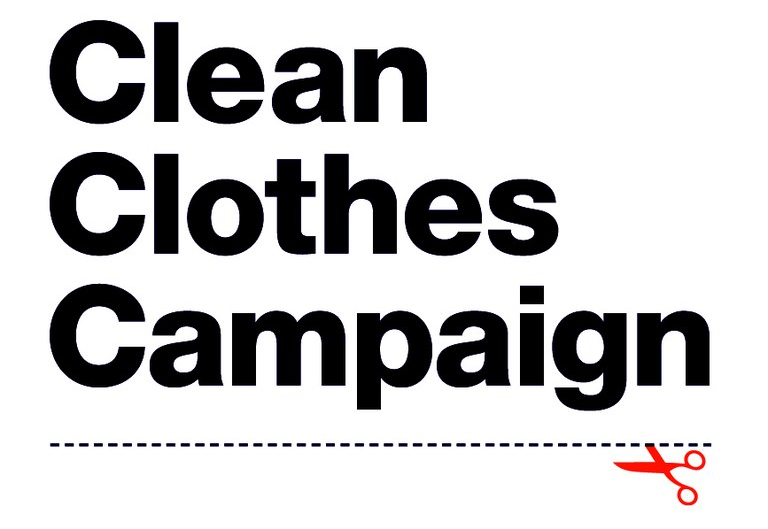Search results
12 results
Sort by:
BLOG - Failing workers by design: The fatal assurances of the social auditing industry
Rasul was working in the Multifabs garment factory on 3 July 2017 when he suddenly heard a loud noise and felt something hit his head.
BLOG - London Fashion Week’s #PositiveFashion must include #GarmentWorkersRights
Sustainability has become a buzz word in fashion, so much so that London Fashion Week 2019 is dedicating a whole exhibition area to #PositiveFashion, a space in which to “explore the most compelling stories around sustainability.”
BLOG - Rethinking MSIs: Binding Brands to Create Change
When the COVID19 pandemic hit, garment brands and retailers around the world cancelled their orders. What was to them a logical risk and cost reducing measure, meant destitution for millions of garment workers around the world.
BLOG - When ‘business as usual’ costs lives: workers in Pakistan call for a binding safety agreement
The global garment industry meets in Pakistan this week, giving them a golden opportunity to accept the lessons of the Ali Enterprises fire and take the first steps toward negotiating a safety agreement with workers’ groups.
Complaint filed against Italian auditor for ignoring fatal flaws in garment factory
More than 250 people died and dozens were injured in a fire at the Ali Enterprises textile factory in Karachi, Pakistan, on 11 September 2012. Only three weeks before, Italian auditor RINA Services S.p.A. certified the factory for abiding to international labour standards. Marking the six year anniversary of the disaster an international coalition of eight human rights, labour and consumer organizations file a complaint to the OECD National Contact Point (NCP) at the Ministry for Economic Development in Rome against RINA, the company that could have prevented hundreds of deaths by doing its work properly.
“We go as far as brands want us to go”
A new report launched today exposes multi-billion social auditing industry operating as corporate social responsibility (CSR) tool to protect brand reputation and profits while aggravating risks to garment workers. The report “Fig Leaf for Fashion: How social auditing protects brands and fails workers” published today by Clean Clothes Campaign offers an extensive analysis of the corporate controlled audit industry, connecting the dots between the most well known business-driven social compliance initiatives, such as Social Accountability International, WRAP, the FLA, and amfori BSCI, and the largest corporate-controlled auditing firms, including Bureau Veritas, TÜV Rheinland, UL, RINA, and ELEVATE, as well as the brand interests that they serve.
Deadly Indian factory fire again shows need for preventive safety measures and justice for workers
A fire in the two-story Nandan Denim factory in the Indian city of Ahmedabad a week ago on Saturday night killed at least seven workers. According to media reports, the high death toll was caused by severe safety defects in the factory. This fire thereby painfully shows the need for concerted preventive safety measures throughout India’s garment industry.
Verdict Ali Enterprise factory fire ignores systemic safety failures
Eight years after more than 250 people died in Ali Enterprise garment factory fire in Pakistan, the court verdict ignores systemic failures in the garment industry. On Sept 22, an antiterrorism court in Karachi sentenced two ex-Muttahida Qaumi Movement workers to death in the Baldia factory arson case while the factory’s four gatekeepers were sentenced to life term. The factory owners walked out without a sentence. German retailer Kik was the main buyer at the time when the fire broke out.
Fig Leaf for Fashion - summary briefing
This summary briefing sums up the main findings and recommendations of the September 2019 Fig Leaf for Fashion report on how the social auditing industry protects brands' reputations rather than workers' lives and thus fails workers by design.
Fig Leaf for Fashion. How social auditing protects brands and fails workers
This September 2019 report offers an extensive analysis of the corporate controlled audit industry, connecting the dots between the most well known business-driven social compliance initiatives, such as Social Accountability International, WRAP, the FLA, and amfori BSCI, and the largest corporate-controlled auditing firms, including Bureau Veritas, TÜV Rheinland, UL, RINA, and ELEVATE, as well as the brand interests that they serve. Evidence presented throughout the report clearly shows how the social audit industry has failed spectacularly in its proffered mission of protecting workers’ safety and improving working conditions. Instead, it has protected the image and reputation of brands and their business models, while standing in the way of more effective models that include mandatory transparency and binding commitments to remediation.
Looking for a quick fix - How weak social auditing is keeping workers in sweatshops
This report from 2005 researches the weaknesses of social auditing. Social audits to check working conditions in production facilities emerged in the mid-1990s after a number of high profile companies were widely scrutinized for substandard working conditions in their supply chains. At that time, a growing number of companies-for example Nike, Gap, Levi Strauss, and C&A-had adopted codes of conduct that in essence were pledges to prevent exploitation and abuse of workers producing their goods. Labour advocates soon challenged these companies to demonstrate conformity to the standards they had adopted. Calls for independent, civil society based forms of workplace assessments were made.
Open letter to EU policymakers on social audit failures
Evoking collective memory of the fire that caused over 250 preventable deaths nine years ago, 15 human and labour rights organisations are jointly urging EU policymakers to address the systemic issues related to the role of social auditing in that disaster as well as in many others. Co-signatories of the open letter released today point out that -- despite serious and evident risks -- a social auditing firm had certified the Ali Enterprises factory in Pakistan as safe mere weeks before the deadly fire.
